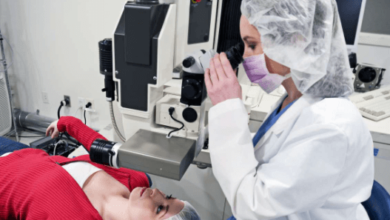What’s the Connection Between Sexual Activity and UTIs?

One of the most common health complaints that most people, especially women, experience is urinary tract infection (UTI). This infection occurs when pathogenic bacteria are introduced into the urinary tract, leading to an inflammatory response and discomfort.
Of several high-risk factors predisposing a person to get a UTI, sexual progress is one of the concerns. Empirically speaking, studies maintained that increasing sexual activity also induces urethra entry of bacterial agents causing UTIs.
Understanding how such sexual activity relates to infection will put individuals in a position to ensure infection prevention as well as the correct UTI treatment if necessary. This blog will further provide readers with insight into how sexual activity affects the risk of developing UTIs and what treatments are available for managing the condition successfully.
How Are UTIs Linked to Sexual Activity?
Sexual Intercourse plays a vital role in developing these UTIs. It involves physical interaction between the genital and urinary areas through copulation. During copulation, bacteria may easily be transferred from the genital or anal tubes into the urethra, a big tube through which urine is passed out from the bladder to the body. Once the bacteria invade the urethra, they travel upwards into the bladder or even kidney regions, causing infection.
Their short urethra makes women more prone to sexually acquired urinary tract infections because they have a lower distance for bacteria to reach the bladder. Certain sexual practices can increase the risk. The exposure and use of spermicides or more than one sexual partner might alter the balance of bacteria found in the urinary tract, increasing the susceptibility to acquisition.
Etiquette aside, if cleaning standards before and after sex are not met, there will be a higher chance of bacteria being pushed into the urethra. Wiping from back to front or failing to urinate shortly after sex could also be responsible for the high occurrence of urinary tract infections. Although this causes urinary tract infections, it remains one of the key causes.
What Are the Treatment Options for UTIs?
Prompt and the right treatment for the urinary tract infection is essential. Neglecting it may cause more serious complications such as infection of the kidneys or chronic bladder disorders. The main treatment options for UTIs include the following:
- Antibiotics
Antibiotics are the most prescribed and effective form of treatment for urinary tract infections (UTIs). Generally, antibiotics are prescribed based on a urine test showing a UTI diagnosis. Medications work by killing the bacteria causing the infection. The particular types of antibiotics given depend on whether the bacteria were found in the urine sample.
Therefore, it is vital to take all antibiotic courses and not stop taking them when you feel well again. Early UTI treatment stopping would cause a recurrence or, in some cases, antibiotic resistance. Some common antibiotics prescribed include trimethoprim-sulfamethoxazole (Bactrim), nitrofurantoin (Macrobid), and ciprofloxacin.
- Home Remedies & Over-the-Counter Relief
However, patients may wish to supplement antibiotic interventions with their own therapeutic measures in the interim. Drinking lots of water is one of the best ways to cure the body from an infection. Over-the-counter pain relievers such as phenazopyridine (Azo) can also be used to relieve UTI pain.
However, rather than being actual treatments for urinary tract infections, these medications will temporarily relieve nuisance through the numbing of the urinary tract and the reduced pain or burning sensation during urination.
- At-Home STD Check
Sexually active persons can develop a urinary tract infection (UTI) due to some underlying sexually transmitted disease (STD), such as chlamydia or gonorrhea, which often mimics UTI symptoms. Anyone experiencing UTI-like symptoms following sexual activity would be better off getting an at home STD check. You can rule out an STI that may need a different UTI treatment approach.
At home STD check offers complete confidentiality and convenience when getting tested for some infections. If your diagnosis is an STI, appropriate treatment will be given, which can be antibiotics or antiviral medication, depending on the causative agent. This will speed up your recovery from both UTI and STI and prevent future occurrences.
- Preventive Measures for Recurring UTIs
Recurrent UTIs may call for an approach from your doctor to prevent the infections. These may involve taking low-dose antibiotics orally each day for several months or after sexual intercourse. This UTI treatment modality is particularly beneficial to persons prone to recurrent urinary tract infections associated with sexual intercourse.
Other preventive methods include:
- Daily cranberry juice consumption.
- Avoiding irritants like scented soaps or douching products.
- Inculcation of good hygiene practices.
Furthermore, urinating immediately after intercourse may be a preventive measure as it flushes out bacteria that may have entered the urethra during sexual activity.
When to See a Doctor?
You must see a doctor if you have recurrent or frequent urinary tract infections (UTIs) or if the symptoms progress with home remedies. Recurrent urine infections may indicate an underlying condition, such as some abnormality of the urinary tract or impaired immune defense.
See a doctor when one suffers high fever, chills, nausea, vomiting, or lower back pain. Unfortunately, these are also signs that an infection has traveled to the kidneys. Blood in urine or increasingly painful urination should be sent to the healthcare professional for further evaluation.
Pregnant or abounding disease states like diabetes and severely immunocompromised individuals are also advised to make a visit for consultation whenever a UTI infection is suspected because they also predispose to complications.
Read also: Owning a Caravan Park: Your Path to a Profitable Lifestyle Business
The Final Words
Withdrawal or sexual activity has a significant influence on UTI development because of the introduction of bacteria into the urinary tract. It is by this that one seems to know how to avoid some of the things that encourage them to get into the habit of good hygiene or urination after coitus. If a person has a urinary tract infection, the person should not delay and should seek UTI treatment, antibiotics, home remedies, or preventive treatment for infection. In addition to this possibility, an at-home STD check would be really necessary where suspected STIs might cause concern.



